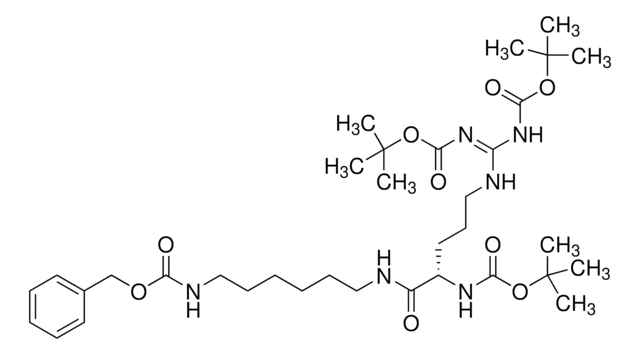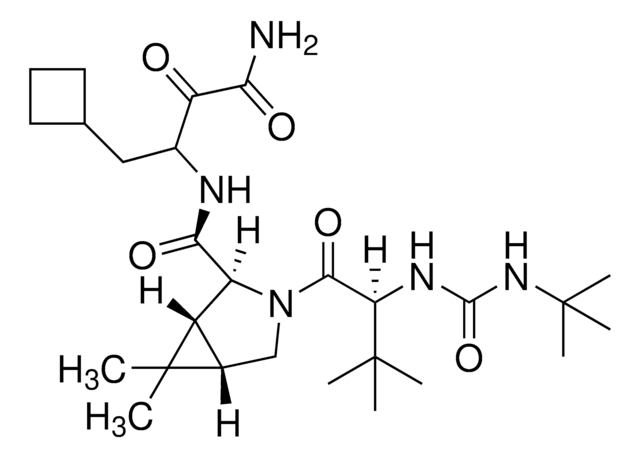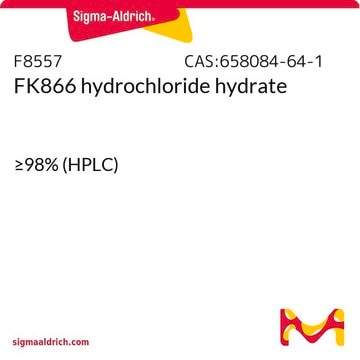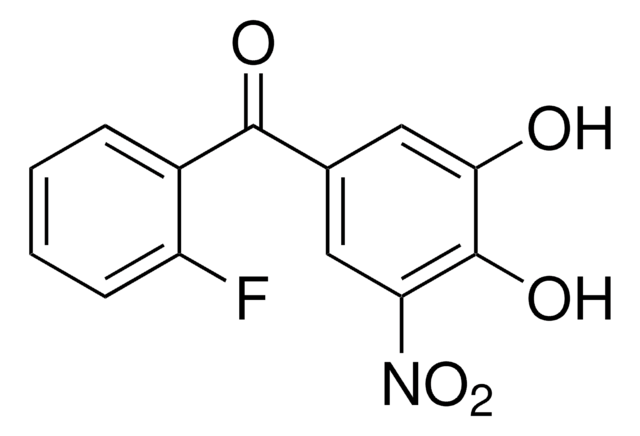Key Documents
SML3236
UNC10201652
≥98 mg/mL (HPLC)
Synonim(y):
4-(8-(piperazin-1-yl)-1,2,3,4-tetrahydro-[1,2,3]triazino[4′,5′:4,5]thieno[2,3-c]isoquinolin-5-yl)morpholine, 1,2,3,4-Tetrahydro-5-(4-morpholinyl)-8-(1-piperazinyl)[1,2,3]triazino[4′,5′:4,5]thieno[2,3-c]isoquinoline
About This Item
Polecane produkty
Postać
powder
Poziom jakości
stężenie
≥98 mg/mL (HPLC)
kolor
white to beige
rozpuszczalność
DMSO: 2 mg/mL, clear
temp. przechowywania
2-8°C
ciąg SMILES
C12=C(N3CCOCC3)N=C(SC4=C5N=NN=C4N6CCNCC6)C5=C1CCCC2
Opis ogólny
Kod klasy składowania
11 - Combustible Solids
Klasa zagrożenia wodnego (WGK)
WGK 3
Temperatura zapłonu (°F)
Not applicable
Temperatura zapłonu (°C)
Not applicable
Certyfikaty analizy (CoA)
Poszukaj Certyfikaty analizy (CoA), wpisując numer partii/serii produktów. Numery serii i partii można znaleźć na etykiecie produktu po słowach „seria” lub „partia”.
Masz już ten produkt?
Dokumenty związane z niedawno zakupionymi produktami zostały zamieszczone w Bibliotece dokumentów.
Nasz zespół naukowców ma doświadczenie we wszystkich obszarach badań, w tym w naukach przyrodniczych, materiałoznawstwie, syntezie chemicznej, chromatografii, analityce i wielu innych dziedzinach.
Skontaktuj się z zespołem ds. pomocy technicznej








